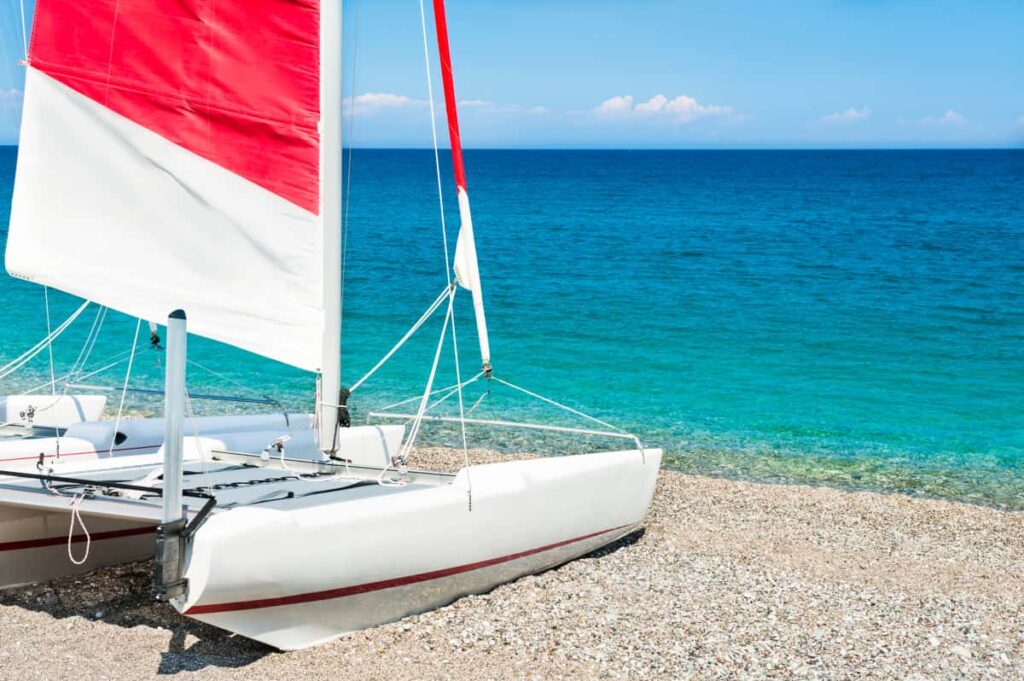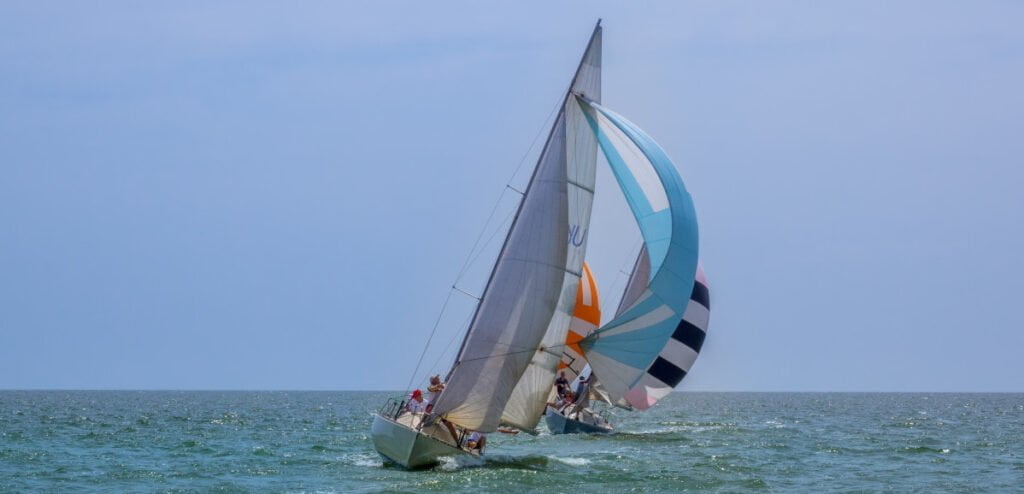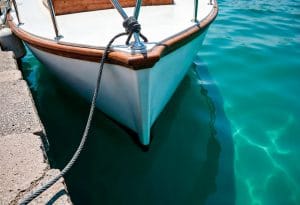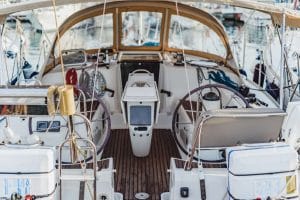When one begins to enter the nautical world, at first everything is doubts: what types of boat licenses exist, what boats I can govern with each of them, how to take the courses and get the licenses... In this post, we respond to one of the questions our students ask us most: how many types of sailboat are there?
Classification of the Different Types of Sailboats
Sailboats can be classified in multiple ways according to their characteristics, although one of the most common is based on the number of hulls of the boat: Although we traditionally tend to think of sailboats as ships with a single hull, the truth is that they can also have two or more.
Monohull
As its name indicates, a monohull sailboat is one that It only has a helmet. It may also include a small auxiliary engine, although its main source of propulsion is the wind.
Thanks to their advantages over other types of boat, monohull sailboats are very popular vessels:
- They can reach high speeds, which provides strong sensations to the crew members
- His maintenance is more economical, especially with regard to docking and handling.
- occupy less docking space in the port than a multihull sailboat.
- They are more easy to maneuver.
Despite all of the above, it is strong and very safe boats, much more difficult to capsize than a boat with more than one hull.
Multihull
Although they are less common, it is possible to see sailboats with more than one hull: this is the case of the catamarans, with two hulls, or even trimarans, which have 3. In favor of this type of boat is the fact that same size, offer greater volume and, therefore, they are more comfortable, especially when sailing with the family.

As for their behavior at sea, it is a matter of taste, although it is usually admitted that these are heavier boats and, therefore, with a less sporty behavior, very comfortable to navigate in good seas but difficult to control in bad weather.
Types of Sailboat depending on their characteristics
Although the number of hulls is the first general classification, since it is the most visible feature, sailboats can be classify based on many other characteristics. Below we list the different types of sailboat that you can find:
Light
So small and manageable that they are usually chosen in the navigation schools to offer practical classes. In addition, both their acquisition and maintenance are very economical, since they do not even need mooring, since they can be transported comfortably in the towing any vehicle.
Among the most common light sailboats are:
- Optimist: the only boat approved by the International Sailing Federation to be helmed by children under 15 years of age.
- Laser: Much more complicated to handle, the Laser is the most popular boat in regattas around the world.
- Finn: designed for a single crew member, it has been Olympic class since 1952.
- Vaurien: perfect to be used as a training boat, although it has also been successful in regattas.
- Snipe: designed for two crew members in 1931, it is very common in regattas of all levels.

Sports
Among the advantages of sports sailboats are their ease of storing them on marina piers and transporting them by car with the appropriate trailer, which makes them very suitable for both sports and family outings.
In terms of size, they fall between the light ones and the old ones, although in this case they do. They have a keel, but no engine. Their sails are very large, which gives them great momentum.
Within the sailboats with a sports keel, we can also distinguish:
- racing sailboats: They are specially designed for participation in sports events, so they are usually made of very light and durable materials (such as carbon fiber) and have very striking designs. Their sails are also lighter than normal.
- cruising sailboats: designed for long journeys, they have all the comforts, they are like small miniature hotels. They have a vast space to store the food and supplies necessary during the voyage and have a support engine to navigate in unfavorable conditions and maneuver correctly when entering the port.

Ancient
Old or traditional sailboats are those that come to mind when we think of a sailing boat: monohull, not very long in length, suitable for voyages of a maximum of 48 hours. Currently, it is very difficult to get a new one, the most common thing is to find them restored.
Recreation
Pleasure sailboats, also known as sailing boats, are designed for the enjoyment of navigation, giving priority to comfort over speed, so they are not suitable for sports practice. Usually, up to 10 people can navigate in them, which is why they are often used on tourist tours and excursions.
Motorsailer
They have a propeller engine, which is what is used to propel the ship for most of the time, since usually the candles are smaller, which means that they are only deployed when the wind conditions are ideal for sailing.
sailing yacht
If there is something that defines sailing yachts, it is, without a doubt, the luxury and exclusivity. These are very large boats, designed for long voyages in complete comfort and, in most cases, this requires them to be governed by a professional pattern.
These are vessels that incorporate several high power engines, so sails are more designed to save fuel during navigation when wind conditions are ideal than to be the main form of thrust for the ship.




